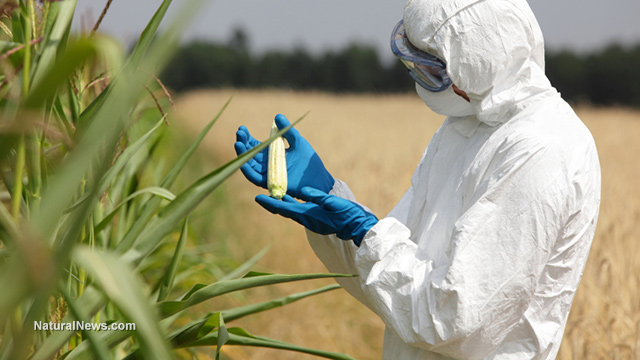
Advertisement
As people become increasingly attuned to the dangers posed by GMOs, Big Ag is trying to stem its losses through PR campaigns. Now they’ve taken to preying on young people, whose impressionable minds they are hoping to mold into future proponents of their dangerous products.
On July 22, the University of Kentucky College of Agriculture, Food and Environment will host Ag Biotech day. This free event hopes to highlight career opportunities in agriculture to high school students.
The students, along with their parents and teachers, will be invited to tour University of Kentucky agriculture research facilities and labs and watch some of these researchers in action. Lab tours will be led by graduate students as well as postdoctoral scholars, and students will have the opportunity to ask current medical biotechnology and agriculture students some questions.
They will also be offered a free lunch, which will be served while students listen to representatives from the university’s biotech program try to convince them to enroll. One can only imagine what Frankenfoods they might be serving at this meal.
Asking the right questions
“We need to bridge the gap between public perceptions and real-world use of biotech in agriculture,” said Forestry Department scholar and event coordinator Ellen Crocker. “This will be a good opportunity, for teachers especially, to stay abreast of the latest developments and opportunities in the field.”
That kind of language – about bridging the gap between public perceptions and reality – will be all too familiar to those of us who have heard the condescending verbiage used by Big Ag firms like Monsanto and their lackeys when they are trying to convince us that their offerings do not cause cancer as the World Health Organization suspects and are instead perfectly safe for all of humanity. Those thousands of cancer patients who are suing them couldn’t possibly have a case, right?
Will the UK Ag Biotech Day tell students that side of the story? When UK reps mention that past graduates have gone on to hold executive positions at Monsanto, will they hear about the nearly 300,000 families who have lost their loved ones because Monsanto’s lies drove hundreds of thousands of Indian farmers to commit suicide?
Will they hear the stories of all those who are died or who are slowly and miserably in the process of dying as a result of glyphosate exposure? Will they mention the destruction caused to the environment, from the water, soil, and air to honeybees, butterflies, and other animals? Or will they simply be told that this is a great job opportunity where they can make a lot of money – especially if they are good at lying and bullying?
Letting nothing go
Targeting young people who might not have made up their minds yet about these dangers is the latest in a long list of clever yet underhanded approaches Big Ag has been taking to turn public opinion around. For example, it was recently revealed that Monsanto hired a brigade of internet trolls to post positive comments in defense of the firm, its chemicals and GMOs in general everywhere from news articles to people’s posts on Facebook.
They even have a name for this immoral campaign – “Let Nothing Go.” Their philosophy is that their missionaries should strive to never leave any remotely negative mention of GMOs online, not even people’s social media posts, unanswered. Instead, they must counter these comments with disinformation or outright lies – whatever it takes to turn the tide in their favor.
They also have an entire department that is tasked with smearing journalists who speak out against them and discrediting scientists who prove the dangers of GMOs. They pay staffers to ghost write studies that make their products appear safe, then they pay scientists to sign off on them to make them look legitimate. Yes, Ag Biotech Day, please tell our children what great things they can be a part of when they join this profitable field!
Sources include:
Advertisements







